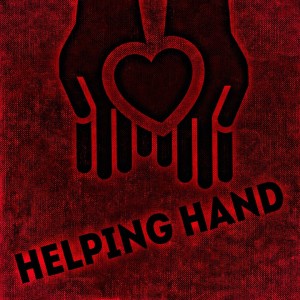If you’ve ever wondered if you can be charitable with only a few extra dollars in your wallet or a little bit of free time, the answer is yes. You just have to get a little creative.
In the Chronicle of Philanthropy’s latest analysis of charitable giving, it appears people who earned less were giving more. Based on state-by-state tax data, the nonprofit industry trade publication reported that between 2006 to 2012, Americans earning more than $200,000 gave a smaller percentage of their income to charity while those earning less than $100,000 actually gave more during the same period.
Wherever you stand on the income scale, stretching charitable dollars or time should begin with a little planning. Here are five steps to consider.
- Check your finances first. Helping others is a worthwhile lifetime habit. However, before you start writing checks or handing out cash to various individuals or groups, check your budget to determine whether you actually have extra money to spare for charitable donations in any form. If you itemize, check the IRS rules (www.irs.gov) on charitable giving or consult with a qualified tax professional to see if there are charitable giving options that fit your circumstances.
- Screen charities you’re considering. It’s never been easier to evaluate a potential charity or nonprofit organization. Leading online databases like CharityNavigator.org,CharityWatch.org and Guidestar.org provide extensive data on thousands of national, state and local charities and nonprofit organizations. The Better Business Bureau also operates Give.org, a national charity database that accredits and notes complaints. The U.S. Federal Trade Commission’s Charity Scams website offers breaking news on illegal fundraising activities and best practices for evaluating charities and nonprofits year-round. What else can you do? Play reporter. Even if an organization checks out through these reputable sources, do an online search of news media just to make sure no unsavory developments have occurred that might discourage your donation.
- Research what’s needed. If the charity in question accepts physical items or volunteer work, see if you’re interested in providing help that way. Check with the charity either online or by phone to determine what they will and will not accept – donating the wrong items simply wastes staff and volunteer time. If you would like to volunteer, ask about opportunities and make sure that volunteer assignment fits you before you commit. Remember, charities really count on their volunteers and your enthusiasm for an assignment can help them keep their turnover to a minimum. Some organizations may also have travel-based service missions that can provide charitable travel opportunities that allow you to help while seeing the world.
- Ask if your employer will match your donation. Even if your cash donation is modest, some employers can make your contribution go farther if they have a matching gifts program. Check with your human resources department or benefits manager. Also, many nonprofits, universities and charitable organizations keep their own online databases of employer matching gift programs.
- Go micro. If you can only find a few dollars to give, don’t let that discourage you. Organize like-minded friends and family members to pool funds, attend events or volunteer time for a cause, or consider a particular nonprofit’s organized crowdfunding (https://www.councilofnonprofits.org/tools-resources/crowdfunding-nonprofits) efforts that will allow you to make an impact with only a few dollars. Still short on cash and want to help? Pick up the phone or email the charity and ask if they accept small items or in-kind services. Some ideas might include gift cards (including ones with unused balances), office supplies, stamps, catering for events or board meetings or help with writing, fundraising or technology.
Bottom line: Making a difference in the world doesn’t always require big bucks, but big know-how helps. Check your finances first, research charities you’re interested in and investigate how small donations of time, money and physical items can make an impact.
Nathaniel Sillin directs Visa’s financial education programs. To follow Practical Money Skills on Twitter: www.twitter.com/PracticalMoney.





